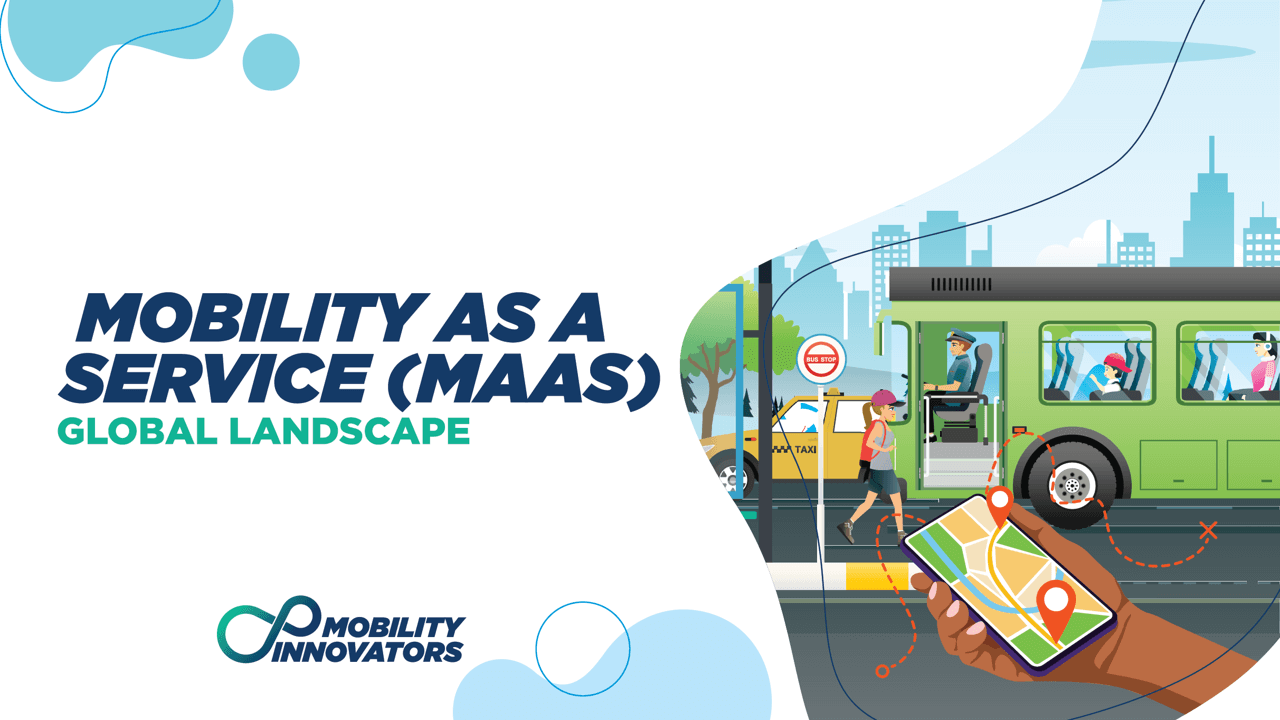
Report on Mobility As A Service (MaaS) – Global Landscape
Mobility as a service (MaaS) is the concept of providing integration of formal & informal transportation modes with the convenience to search, plan, book and pay digitally with the help of Information and Communication Technology (ICT) enabled services (A smartphone). MaaS has been defined differently by different organizations.
Download the full report – Mobility As A Service (MaaS): Global Landscape
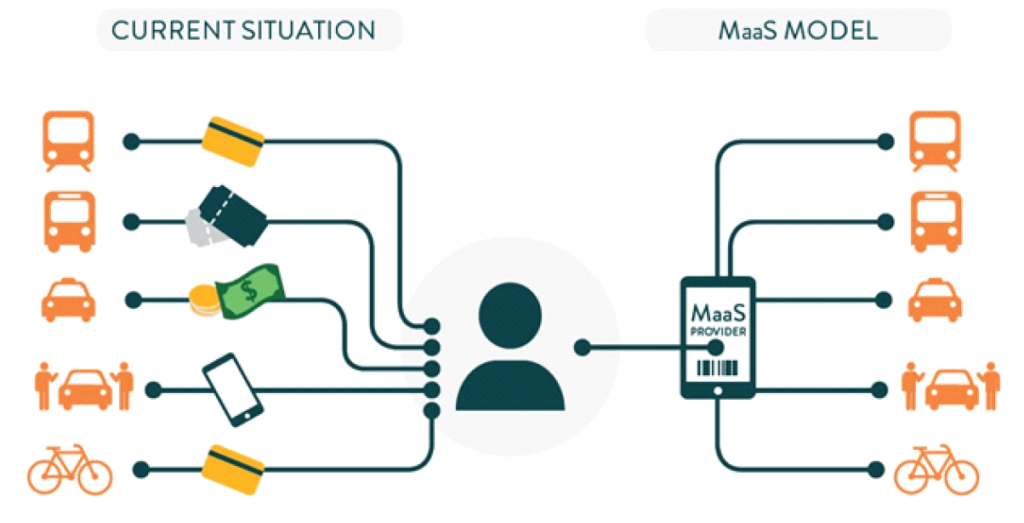
Integration levels for MaaS
In general, the word MaaS refers to a variety of apps that provide numerous mobility possibilities. However, it is critical to note that not all MaaS apps are the same. Several attempts have been made to establish maturity levels for MaaS apps based on their degree of integration, with scores ranging from 0 (no integration) to 4 (full integration – complete integration including societal goals).
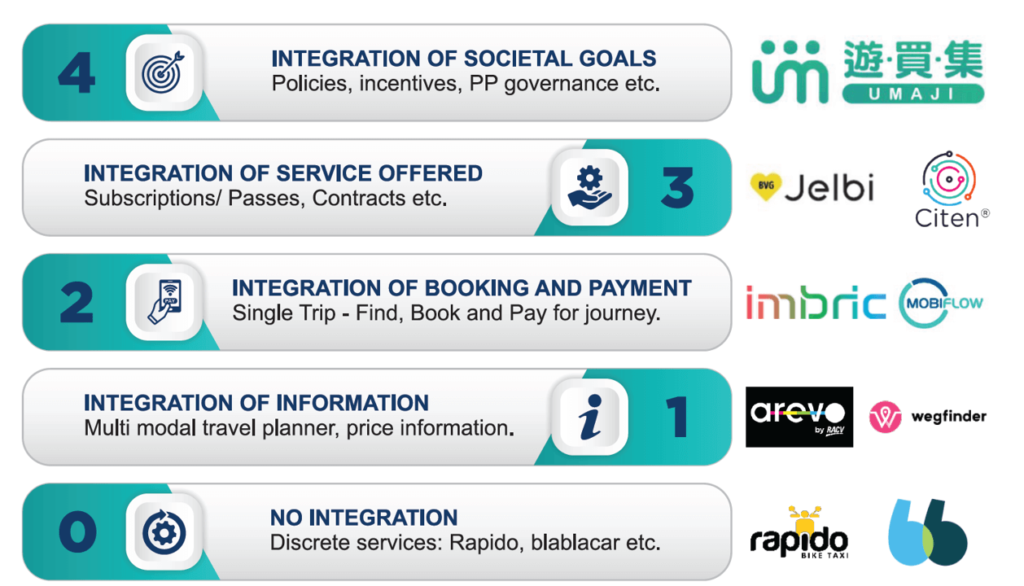
Business Models for MaaS
A MaaS application can be implemented in a variety of ways, and pilots are taking place all around the world. They all have upsides and downsides, depending on the perspective of each stakeholder. Table 1 shows the features of these MaaS models, and the fundamental introduction is as follows:
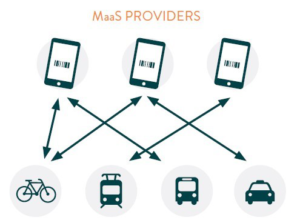
COMMERCIAL INTEGRATOR
Operated by public players in a free and uncontrolled market, agreements between MaaS providers and transportation operators boost competition.
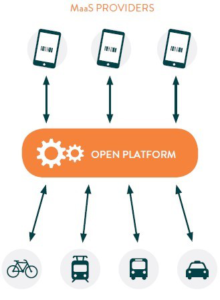
OPEN BACK-END PLATFORM
A shared infrastructure on which multiple players could build a MaaS solution. It is operated by a public body with rules specified by the public authority
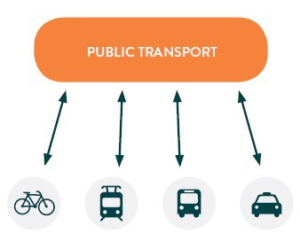
TRANSPORT AS THE INTEGRATOR
Are operated by public transport with selected mobility services. The Rules were set by public transport, Mobility services providers (MSPs) may have to open up their API’s.
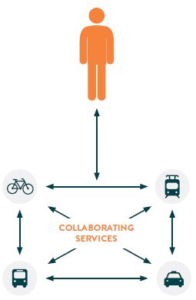
DECENTRALIZED MAAS
Distributed mobility using blockchain, all stakeholders work on a shared platform via decentralized ledger technology. Special podcast on Decentralized MaaS
What Issue is MaaS trying to solve?
Mobility providers may reduce the burden on individuals to own their vehicles by moving to a MaaS model for transportation. However, the implementation of MaaS is a process that requires a systematic approach. Any city which wants to move forward with the MaaS application must first ask the following questions to determine if MaaS is feasible.
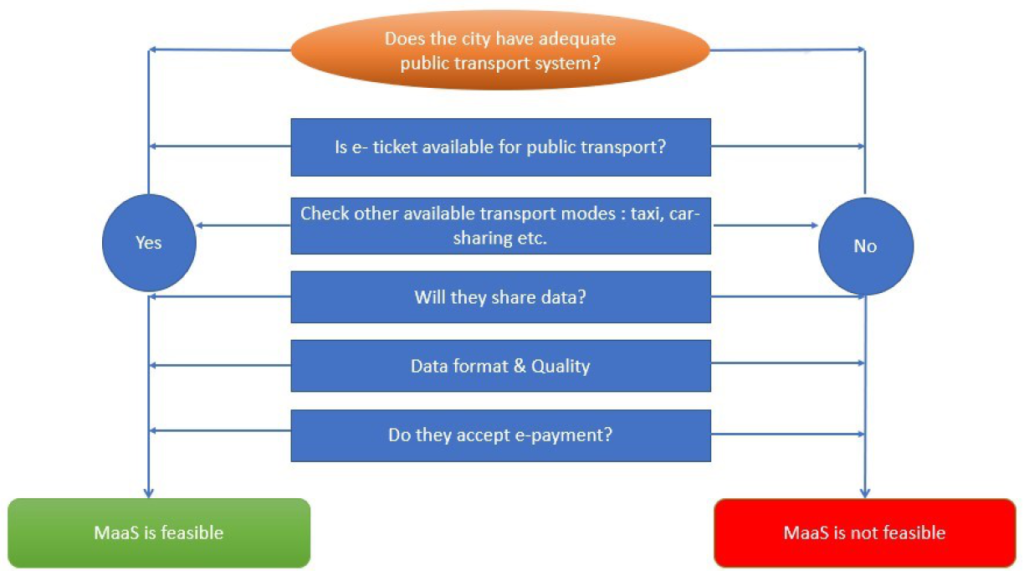
List of MaaS Players around the globe
If you want to add or share suggestions about any other MaaS application, please fill out this form or send us an email at info@mobility-innovators.com
Challenges
MaaS operators are trying to find innovative ways to integrate all kinds of transport modes but they face many challenges, which are impacting the growth of these applications. Some of the key challenges are:
- Trust deficit: Lack of collaboration between different stakeholders both public and private
- Data privacy: Lack of coordination led to data privacy issues
- Business model: No clear business model for the private MaaS players
- User adoption: Requires lower rate to attract new users
- Funding: Low interest from venture capital firms in the sector
Conclusion
The key promise of MaaS is that it will change modal choice for the large numbers of commuters and move people away from private transport. The integration of public transport with new mobility services such as carsharing, bike sharing, scooter sharing, ride-hailing, etc. will help to solve congestion and last-mile connectivity challenges. Traditional service providers are trying to achieve full integration and some start-ups are putting their first step in the MaaS journey. Many countries are planning to develop the national MaaS ecosystems for their citizens to make the cities more sustainable. The pilots for establishing National MaaS are going on all around the globe such as in Russia, The Netherlands, and Taiwan. The report presents some significant and growing MaaS players to increase awareness about MaaS services and reflect the global landscape about them.
To get the full copy of the report, please reach out to us at Info at mobility-innovators.com
Sorry, the comment form is closed at this time.



Pingback: MaaS 2.0: Can this transport superapp make a comeback after Zipster’s unfortunate demise? - News Bit
Pingback: Can MaaS make a comeback after Zipster’s unfortunate demise? Viral Bhayani
Pingback: Can MaaS make a comeback after Zipster’s unlucky death? - l METAVERSE
Pingback: Can MaaS make a comeback after Zipster’s unfortunate demise? - ShareTheLinks
Pingback: MaaS 2.0: Bu Taşıma Süper Uygulaması, Zipster'ın Talihsiz Ölümünden Sonra Geri Dönebilir mi? - HaberZi
Pingback: Ingabe i-MaaS ingakwazi ukubuya ngemva kokushona kwe-Zipster ngeshwa? - Top Dubia Logistic City News
zineb
best article
Pingback: MaaS 2.0: Can this transport superapp make a comeback after Zipster’s unfortunate demise? - TechiLive.in